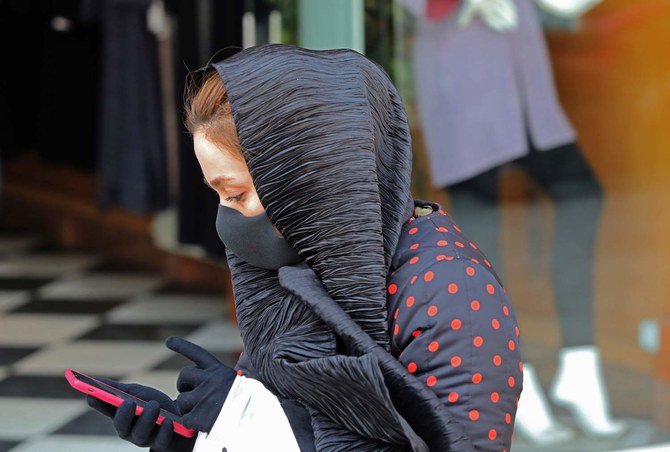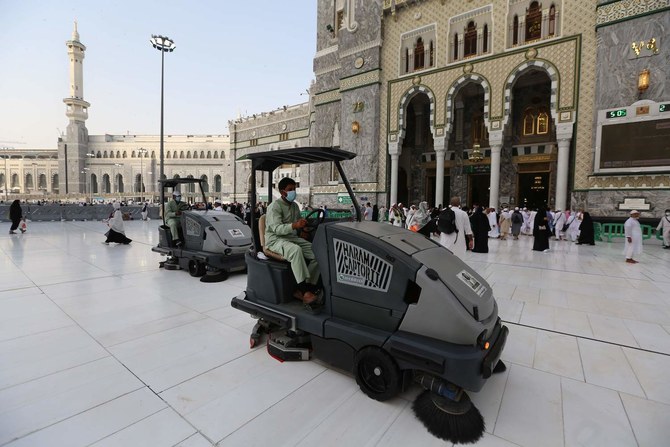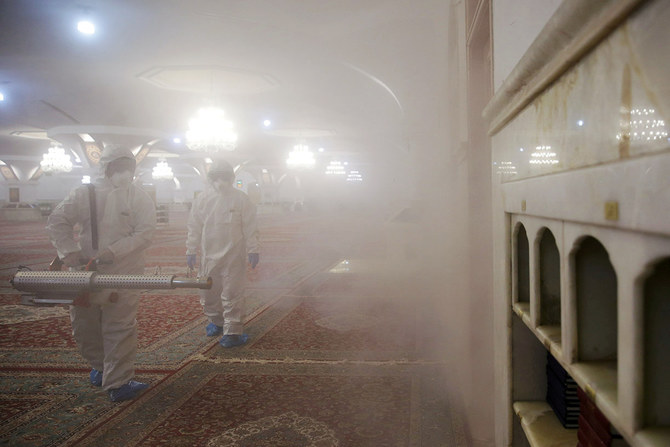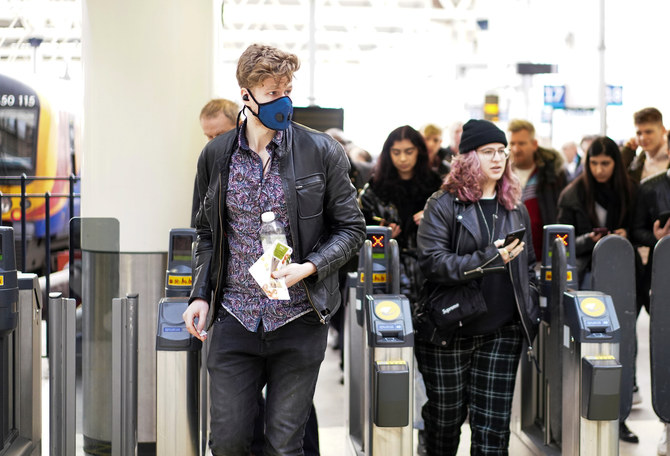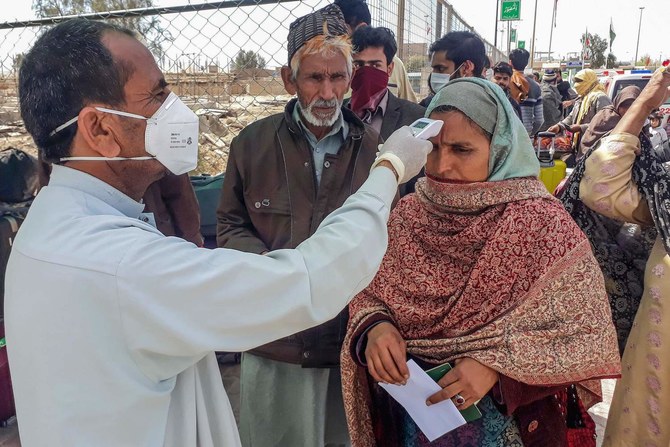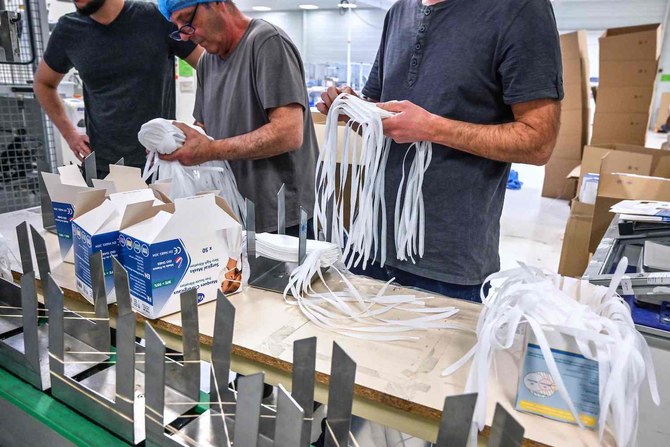DUBAI: Governments in the Middle East continued to warn their citizens and residents against traveling to coronavirus-hit countries including Iran where hundreds have tested positive for the virus and 43 people have died from it.
18:45 - The US is banning travel to Iran in response to the outbreak of the new coronavirus and elevating travel warnings to regions of Italy and South Korea.
Vice President Mike Pence announced the new restrictions and warnings as President Donald Trump said 22 people in the US have been stricken by the new coronavirus and that additional cases are “likely.”
“We want to lower the amount of travel to and from the most impacted areas," said Alex Azar, the secretary of health and human Services. "This is a basic containment strategy.”
Trump provided an update on the virus after the first reported US death Saturday, of a woman he described as being in her late 50s and having a high medical risk. He said healthy Americans should be able to recover if they contract the new virus.
18:00 - France has 100 confirmed cases of coronavirus, the head of the public health service, Jerome Salomon, said on Saturday, raising the tally from 73.
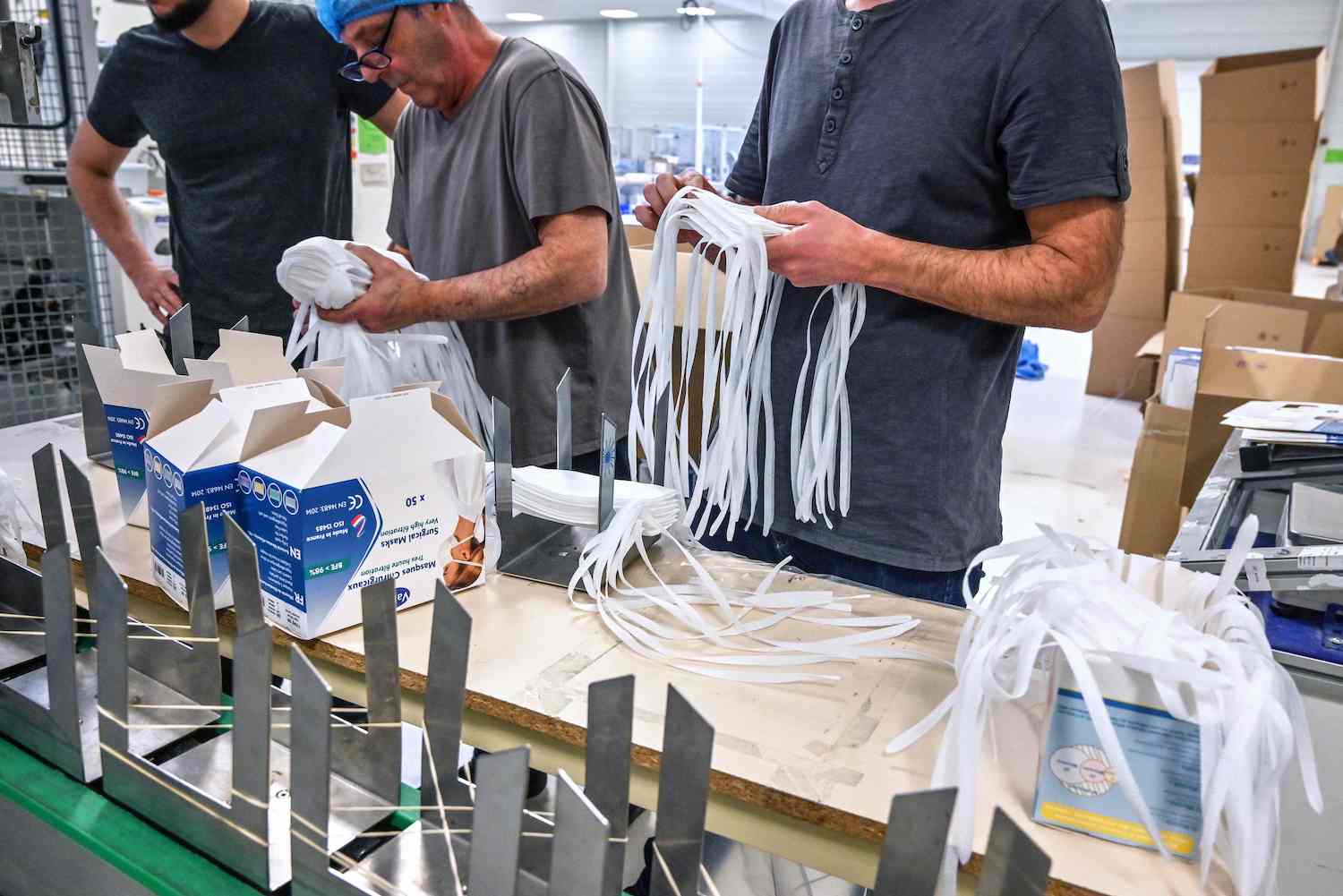
Employees pack repiratory protective face masks on an assembly line at the Valmy protective mask manufacturer plant in Mably, central France, on February 28, 2020, amid the spread of COVID-19. (AFP)
17:18 - The number of confirmed cases of coronavirus in Italy has climbed to above 1,000 and 29 people have died from the virus.
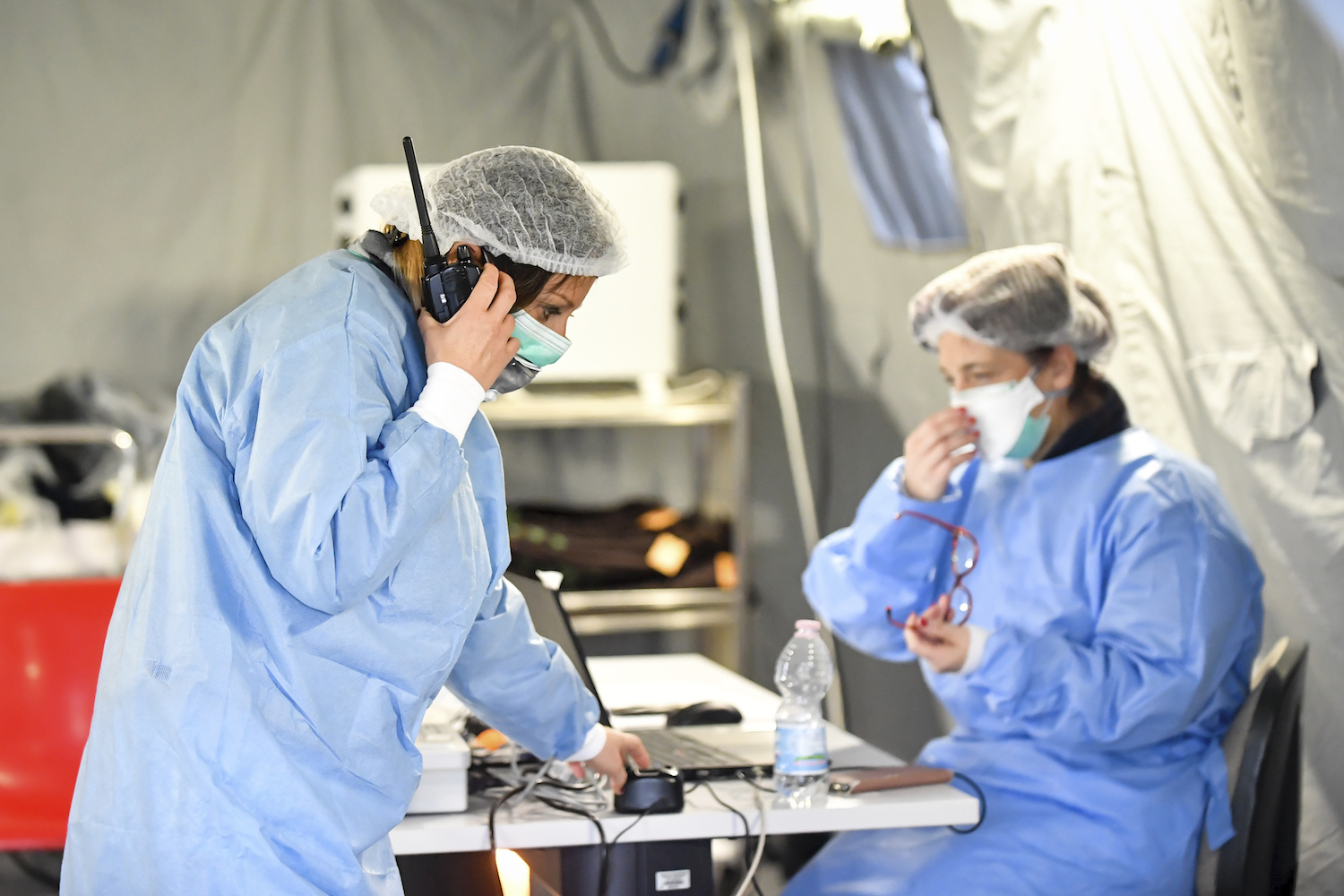
Paramedics work in a tent that was set up outside the hospital of Cremona, northern Italy, Saturday, Feb. 29, 2020. (AP)
17:12 - Nazanin Zaghari-Ratcliffe, a British-Iranian woman jailed in Tehran, believes she has contracted the new coronavirus as Iran struggles to contain a surge in new cases, her husband said on Saturday.
The 41-year-old detainee complained that prison authorities are refusing to test her for the COVID-19 virus, despite suffering from a worsening "strange cold", according to spouse Richard Ratcliffe.
16:45 - South Korea now has the most cases outside China, with 3,150 infections as 813 more patients were reported on Saturday -- the country's biggest increase to date.
North Korean leader Kim Jong Un warned top party officials of the "serious consequences" of failing to prevent an outbreak on their side of the border.
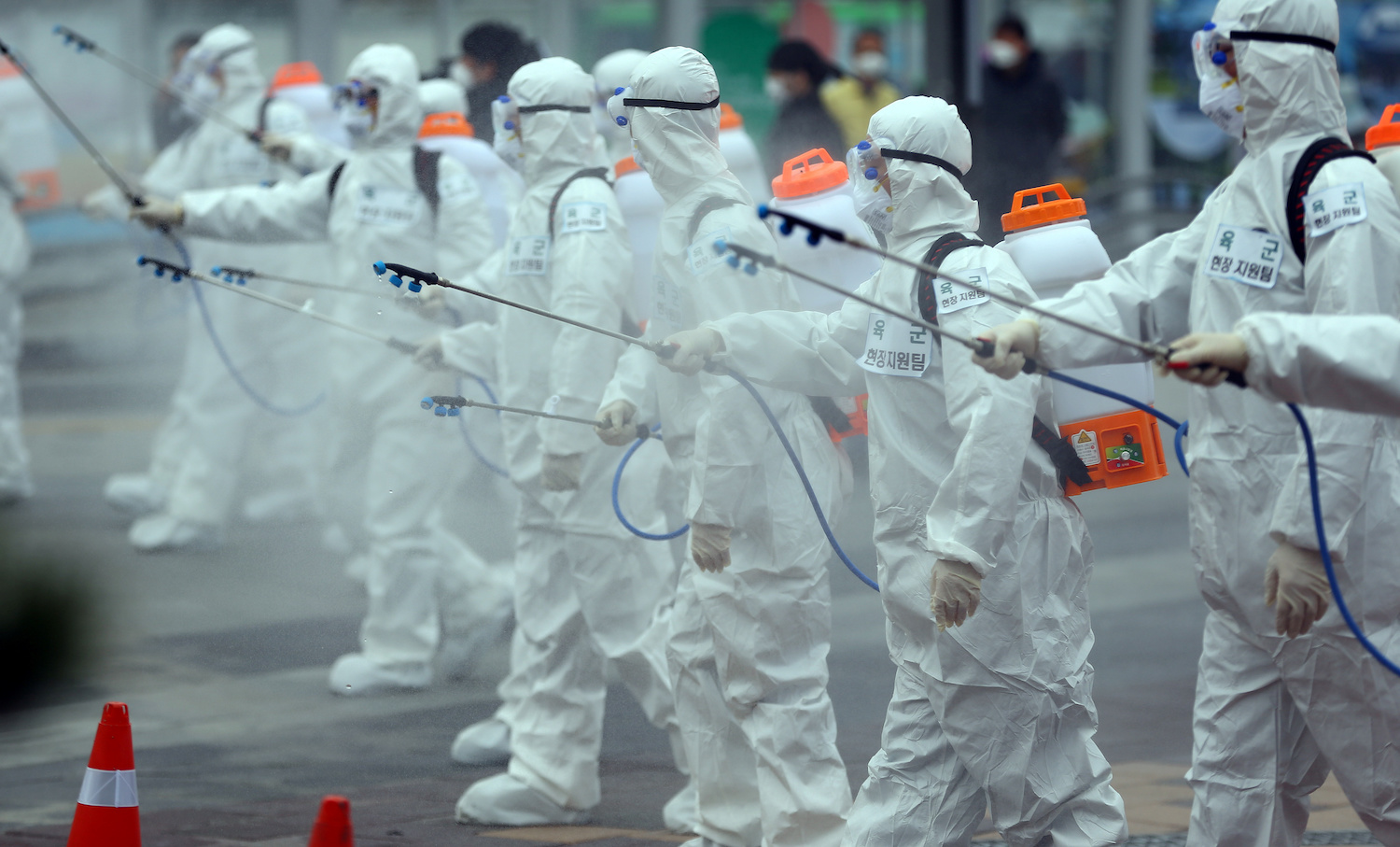
South Korean soldiers wearing protective gear sanitize Daegu railway station in Daegu, South Korea, February 29, 2020. (Reuters)
16:20 - Pakistan confirmed two more cases of coronavirus on Saturday, bringing the total number of positive cases to four since Wednesday when the first two cases were reported in the country.
"We have received reports of two more positive cases of coronavirus, one has been reported in Sindh province, (the) other in federal areas," Zafar Mirza, Pakistan's health minister, told a news conference.
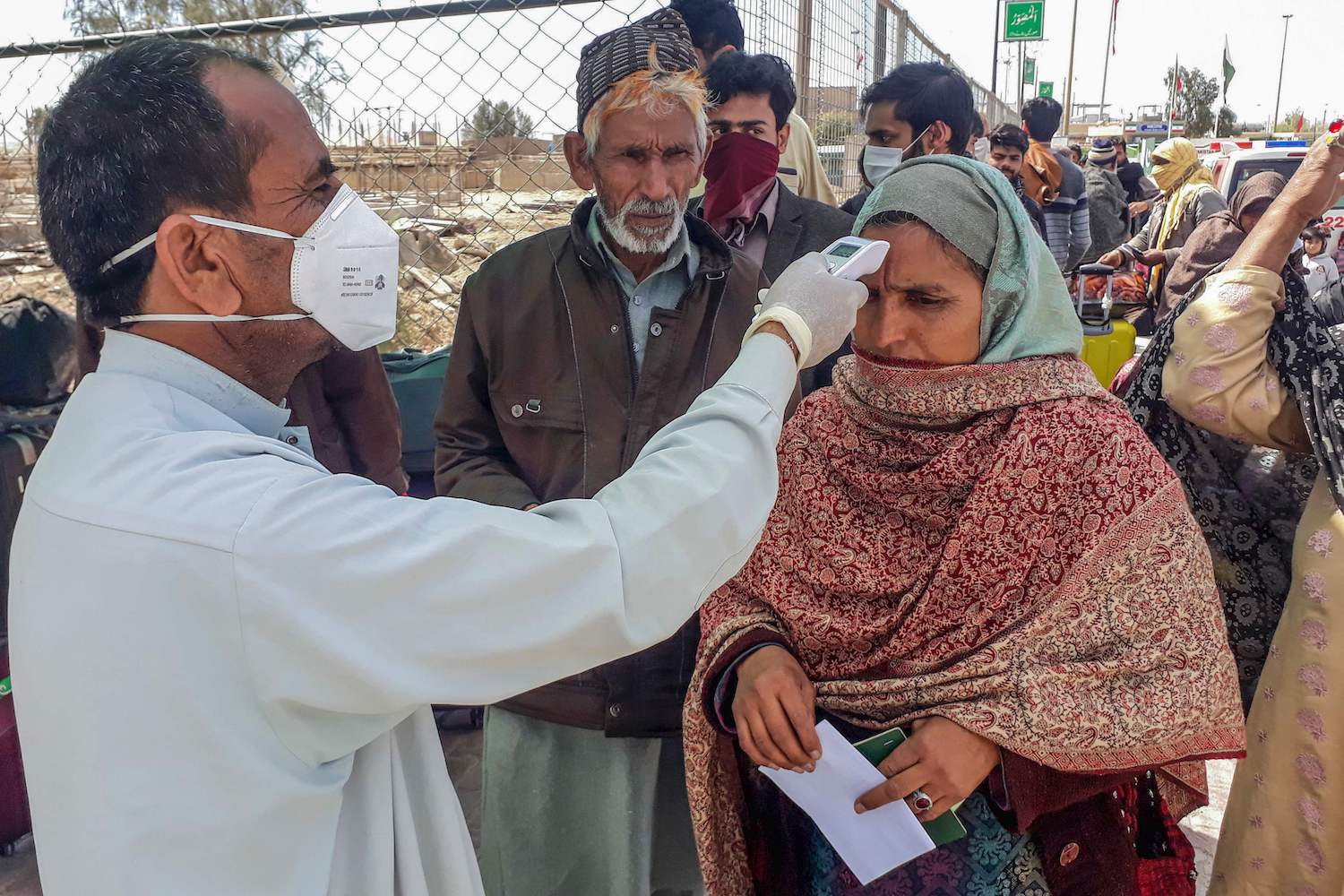
A health personnel checks the body temperature of a pilgrim returning from Iran via the Pakistan-Iran border town of Taftan on Feb. 29, 2020. (AFP)
16:12 - Iraq’s health ministry has announced five more cases of coronavirus.
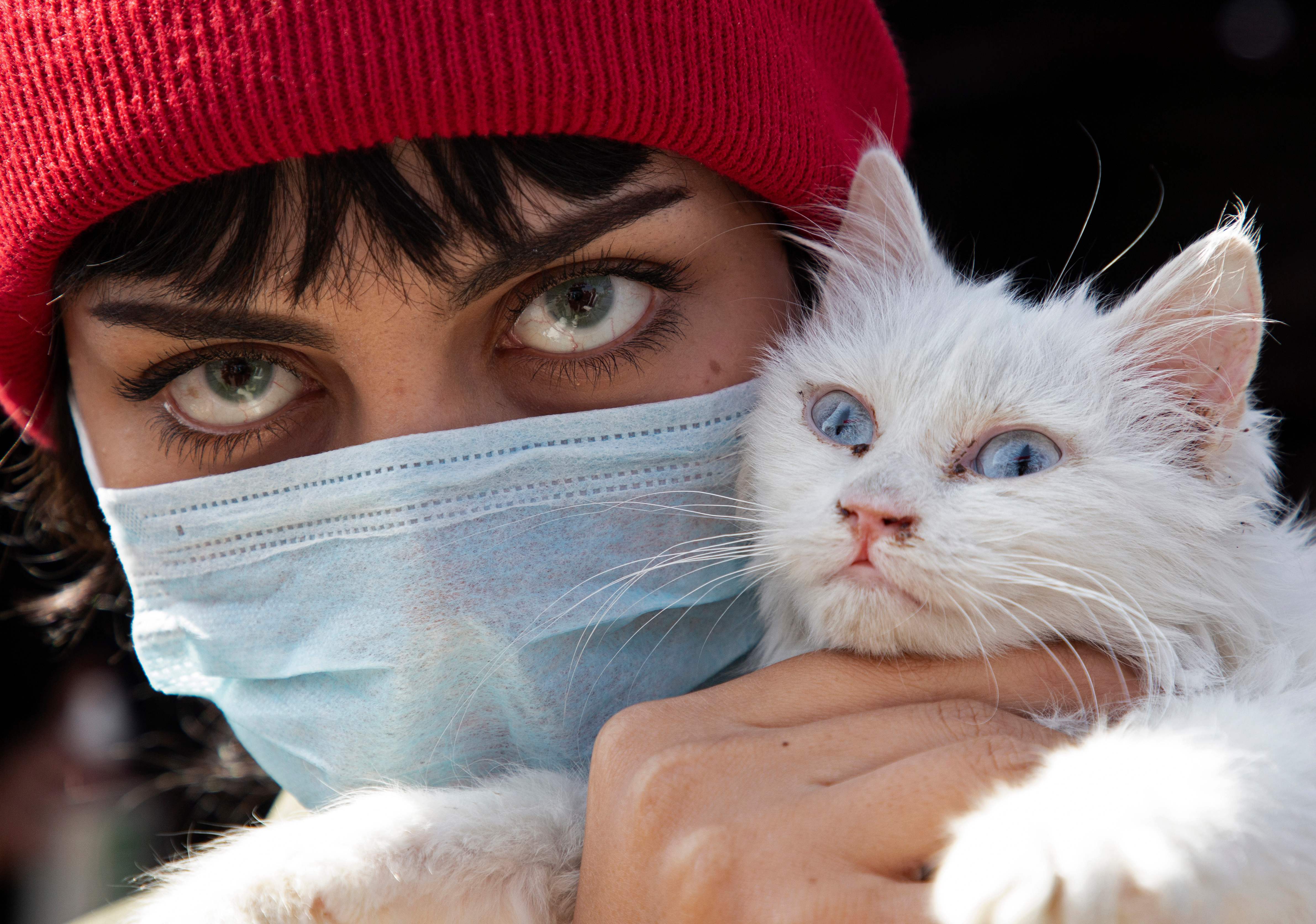
An Iraqi woman wearing a protective mask holds her cat as she poses for a picture during a protest against corruption in the Iraqi government in the southern city of Basra on Feb. 27, 2020. (AFP)
15:51 - Iran is preparing for the possibility of “tens of thousands” of people getting tested for the new coronavirus as the number of confirmed cases spiked again Saturday, an official said, underscoring the fear both at home and abroad over the outbreak in the Islamic Republic.
The virus and the COVID-19 illness it causes have killed 43 people out of 593 confirmed cases in Iran, Health Ministry spokesman Kianoush Jahanpour said.
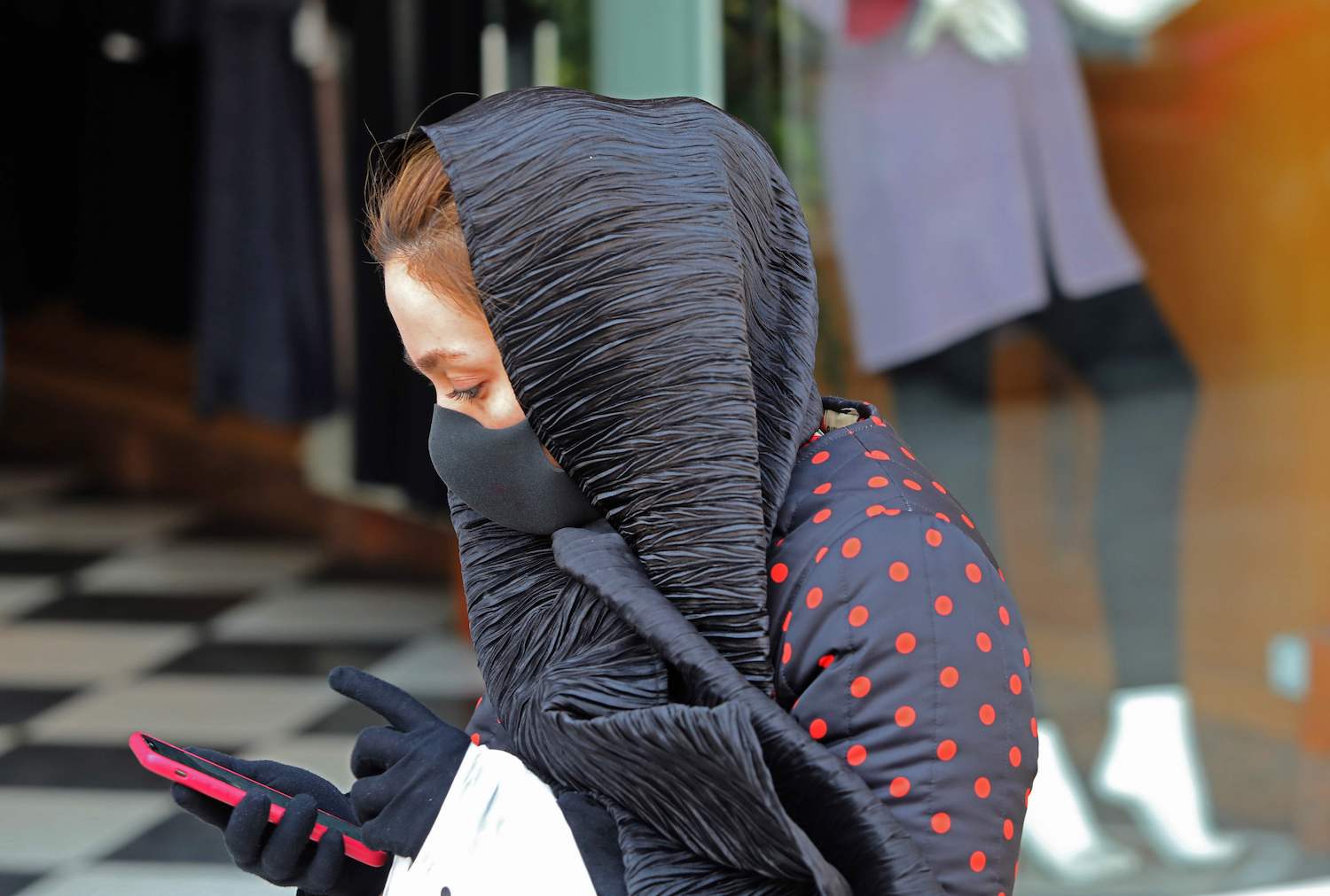
A mask-clad woman makes her way through Tajrish Bazaar in the Iranian capital Tehran on Feb. 29, 2020. (AFP)
15:28 - Lebanon’s health ministry has confirmed three new cases of coronavirus, bringing the total number of cases in the country to seven.
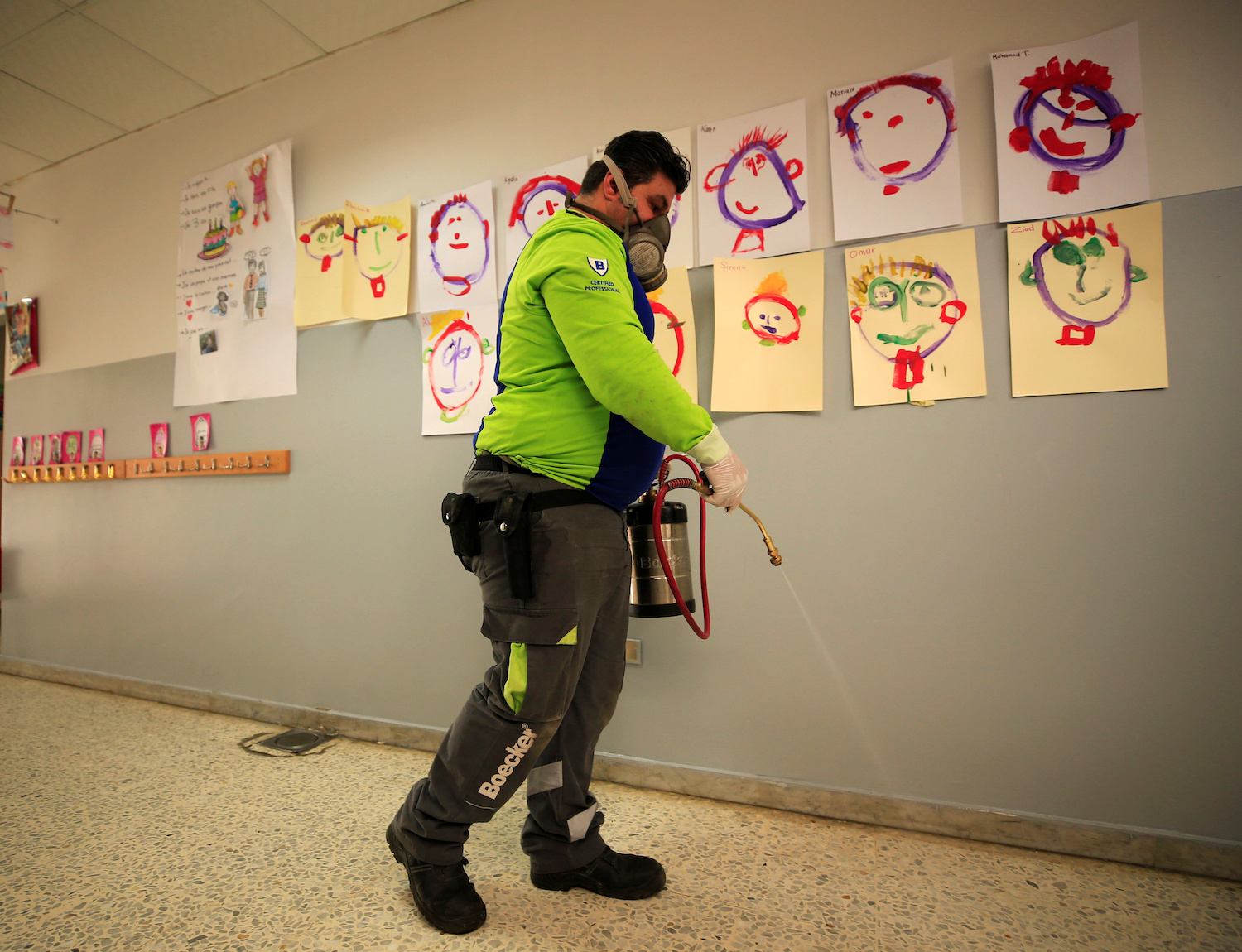
An employee from a disinfection company sanitizes a closed school, as a precaution against the spread of the coronavirus, in Sidon, Lebanon on Feb. 29, 2020. (Reuters)
15:21 - Bahrain says the total number of coronavirus cases in the country has risen to 41 after three citizens returning from Iran have tested positive for the virus.
14:45 - France is banning all indoor public gatherings of more than 5,000 people to slow the spread of a coronavirus epidemic.
Public gatherings are being banned completely in the Oise region north of Paris that has seen a cluster of cases, and in a town in the Alps that has also seen infections, Health Minister Olivier Veran said.
As of Saturday, France had registered a total of 73 cases, up from 57 on Friday. Of those, 59 people remain hospitalized, two have died and 12 have recovered, the minister said.
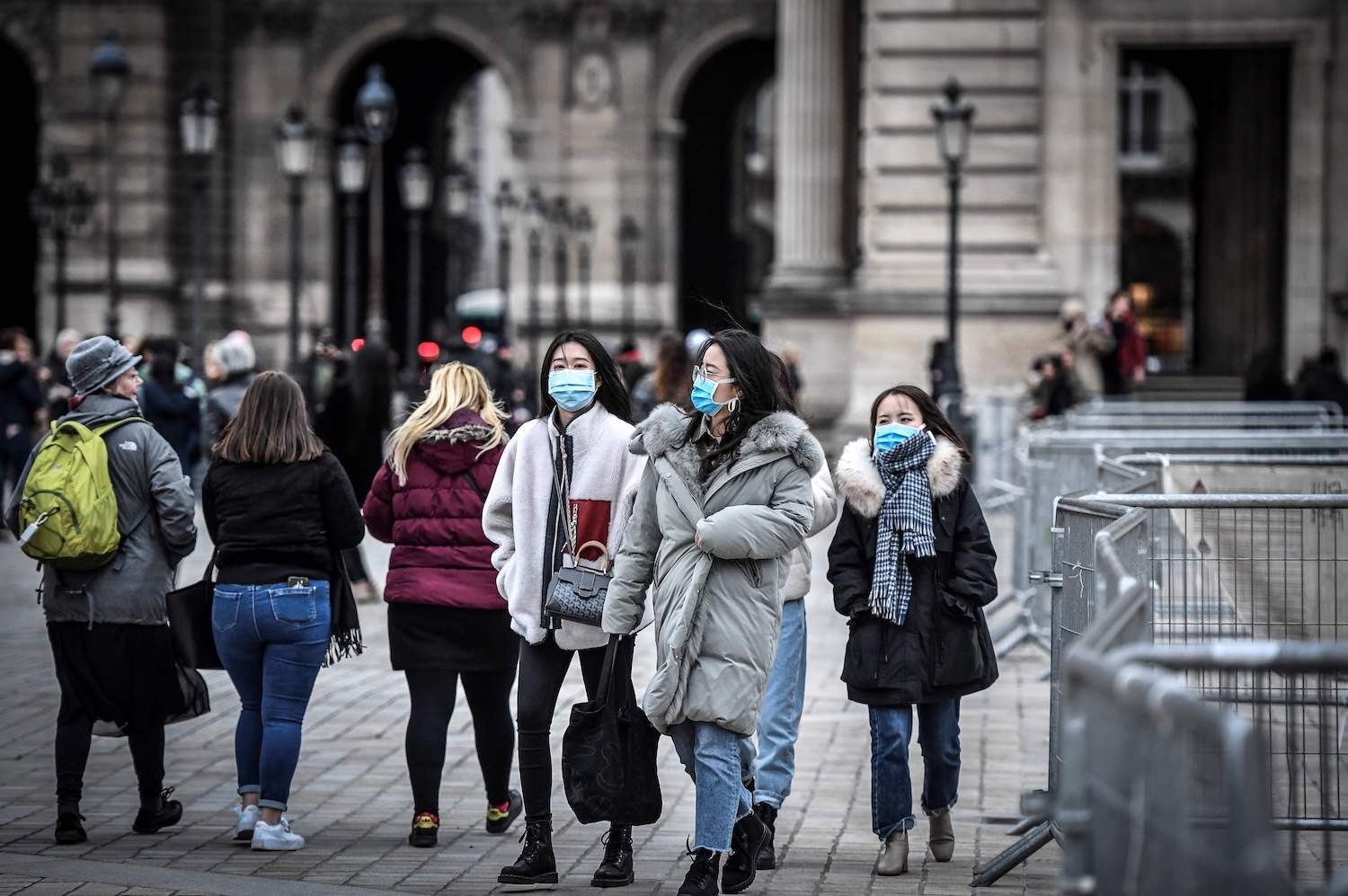
Tourists wearing a protective face mask amid fears of the spread of the COVID-19 novel coronavirus walk at the Pyramide du louvre area on Feb. 28, 2020 in Paris. (AFP)
14:30 - Schools and universities will stay closed for a second consecutive week in three northern Italian regions in an effort to contain Europe's worst outbreak of coronavirus, the head of the Emilia Romagna region said on Saturday.
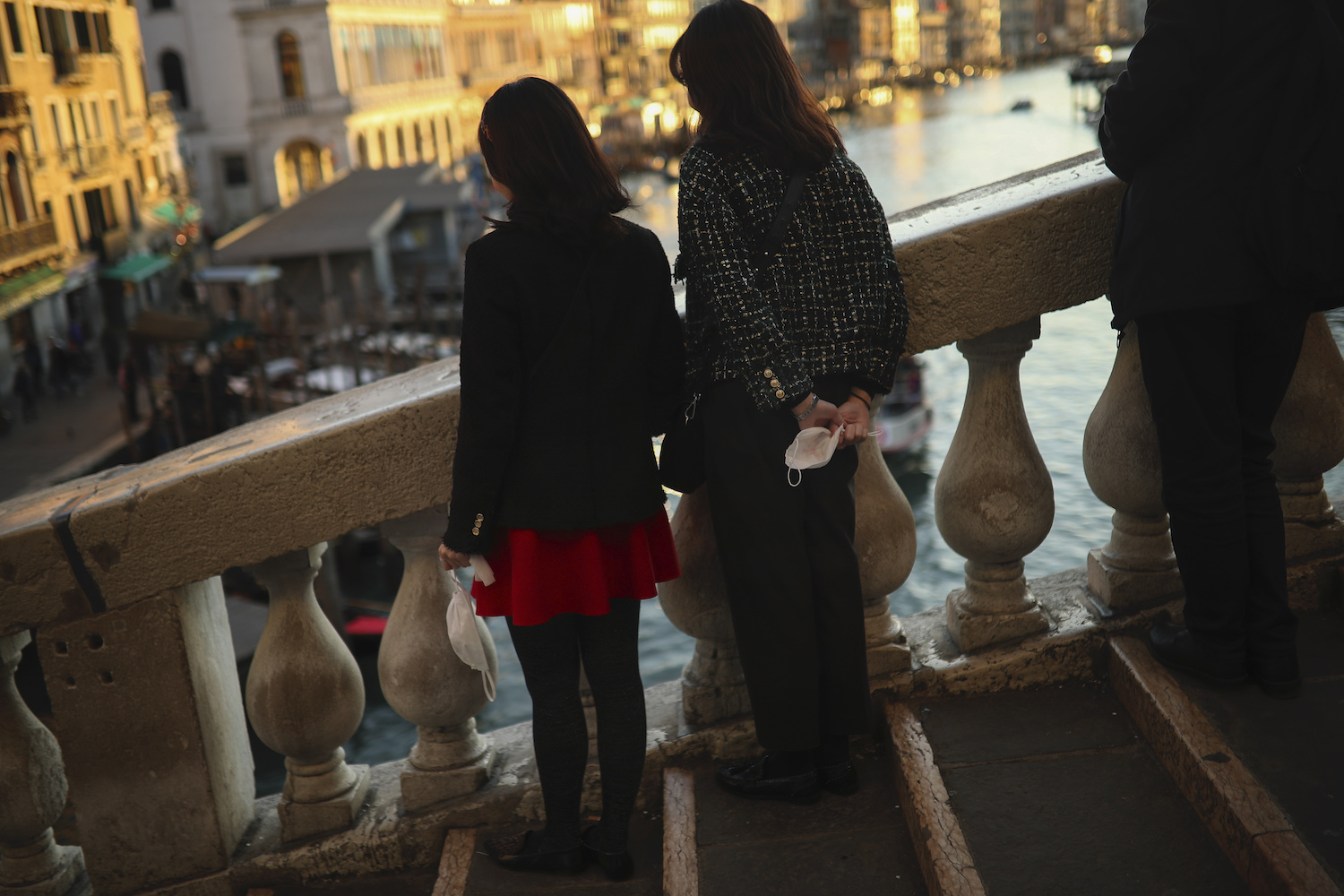
Tourists hold their protective masks as they pose for a photograph at the Rialto bridge in Venice, Italy, Friday, Feb. 28, 2020. (AP)
13:56 - The UAE expressed its support for Saudi Arabia's decision to temporarily suspend entry for Umrah pilgrims and those who wish to visit the Prophet’s Mosque in Madinah over coronavirus fears.
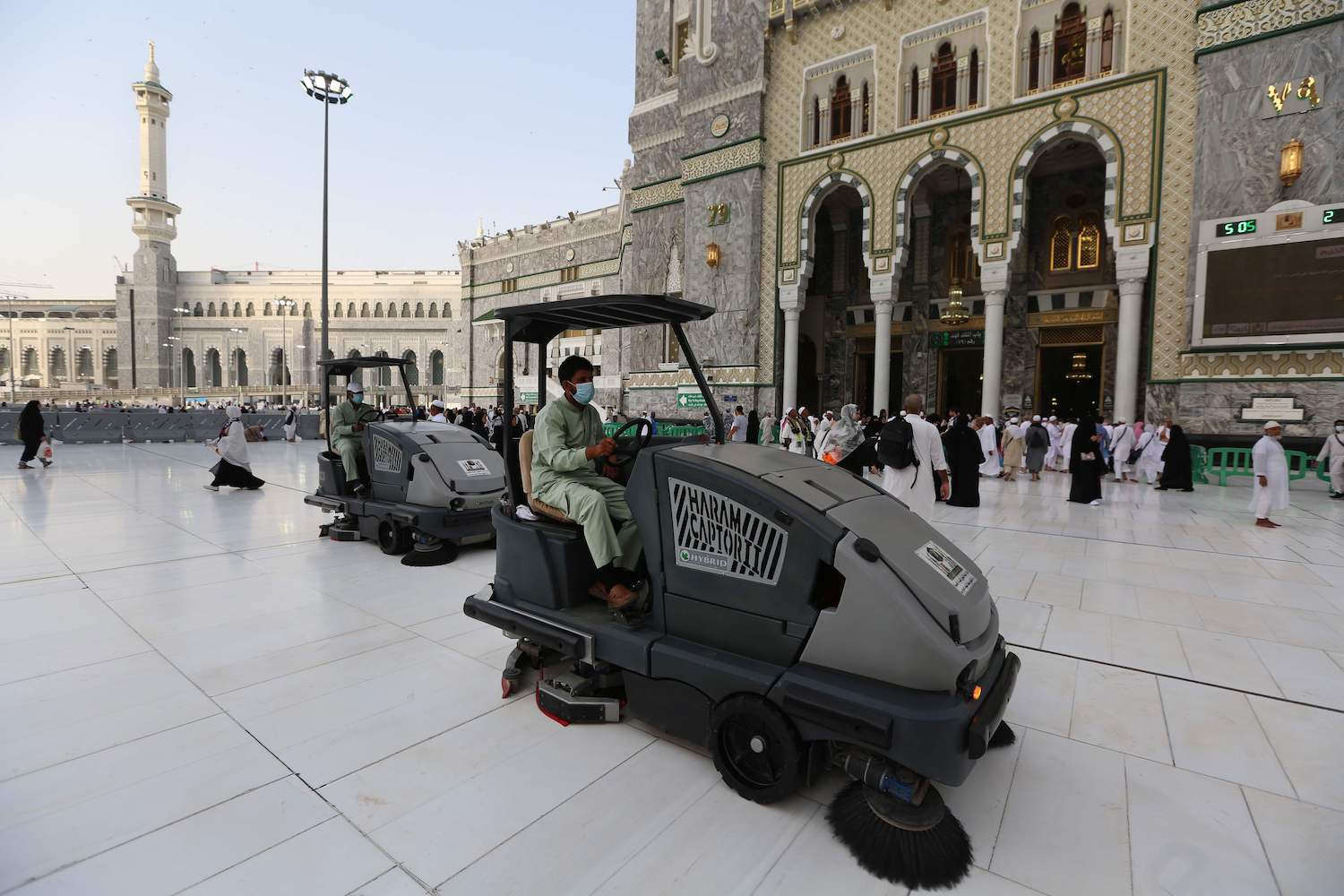
Labourers wearing masks clean the floor of the Grand Mosque in Saudi Arabia's holy city of Makkah on Feb. 28, 2020. (AFP)
11:07 - A World Health Organization delegation visited Kuwait and commended the efforts of Gulf states in airports against the spread of coronavirus, despite the high number of travelers.
10:23 - Qatar’s health ministry reported on Saturday the first case of coronavirus infection in the country, the state-run Qatar News Agency said.
The man is a 36 year old Qatari citizen, who returned from a trip to Iran, the ministry added.
10:06 - UAE’s ministry of education suspended nursery classes starting March 1, the announcement said on twitter.
School activities and trips will be suspended to prevent coronavirus spread, the ministry added.
09:00 - The number of people infected with coronavirus in the United Kingdom had risen to 23 on Saturday, after three more patients tested positive, Britain's health department said.
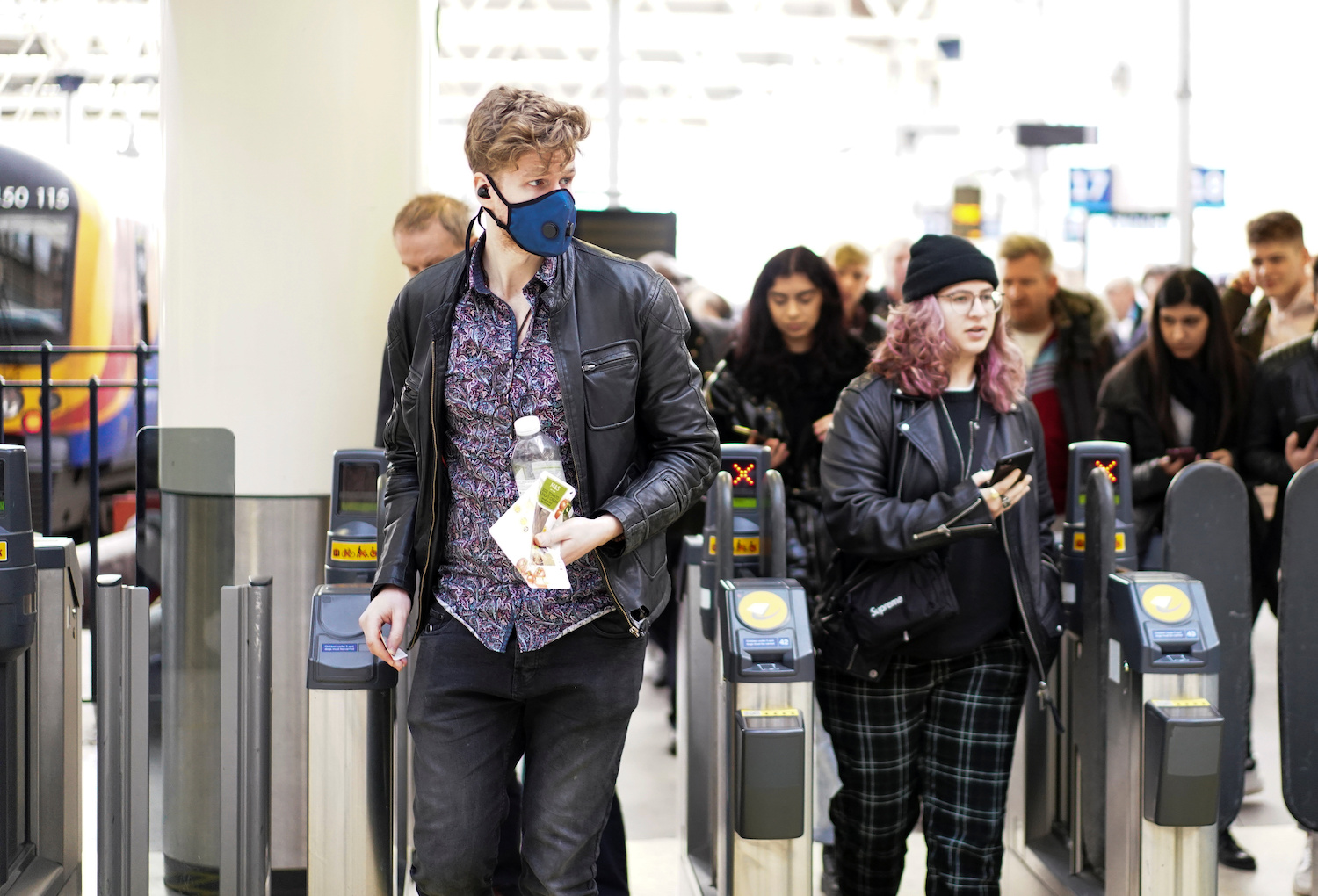
A person wearing a protective face mask walks through a Waterloo station in central London, Britain, Feb. 29, 2020. (Reuters)
08:50 - Iran’s death toll from the coronavirus outbreak has reached 43, a health official told state TV on Saturday, adding that the number of infected people across the country has reached 593.
“Unfortunately nine people died of the virus in the last 24 hours. The death toll is 43 now. The new confirmed infected cases since yesterday is 205 that makes the total number of confirmed infected people 593,” Kianush Jahanpur told state TV.
08:48 - Oman announced the first case of coronavirus recovery, the state news agency ONA reported on Saturday.
The remaining cases continue to receive treatment and are in a stable condition.
08:39 - Iran’s government spokesman will hold his weekly news conference online due to the outbreak of coronavirus in the country, which has the highest death toll outside China, the semi-official Mehr news agency reported on Saturday.
Iran warned on Friday of a “difficult week ahead” after health authorities said the death toll had reached 34 and another 388 people were infected with the coronavirus.
Also, Iranian MP Mohammad Ali Ramazani Dastak, who was elected as the representative for Astaneh-ye Ashrafiyeh, died on Saturday morning.
He is believed to have been tested positive for coronavirus and died at the hospital due to “influenza and chemical injuries” receveid during the Iran-Iraq war, state-run news agency ISNA reported.
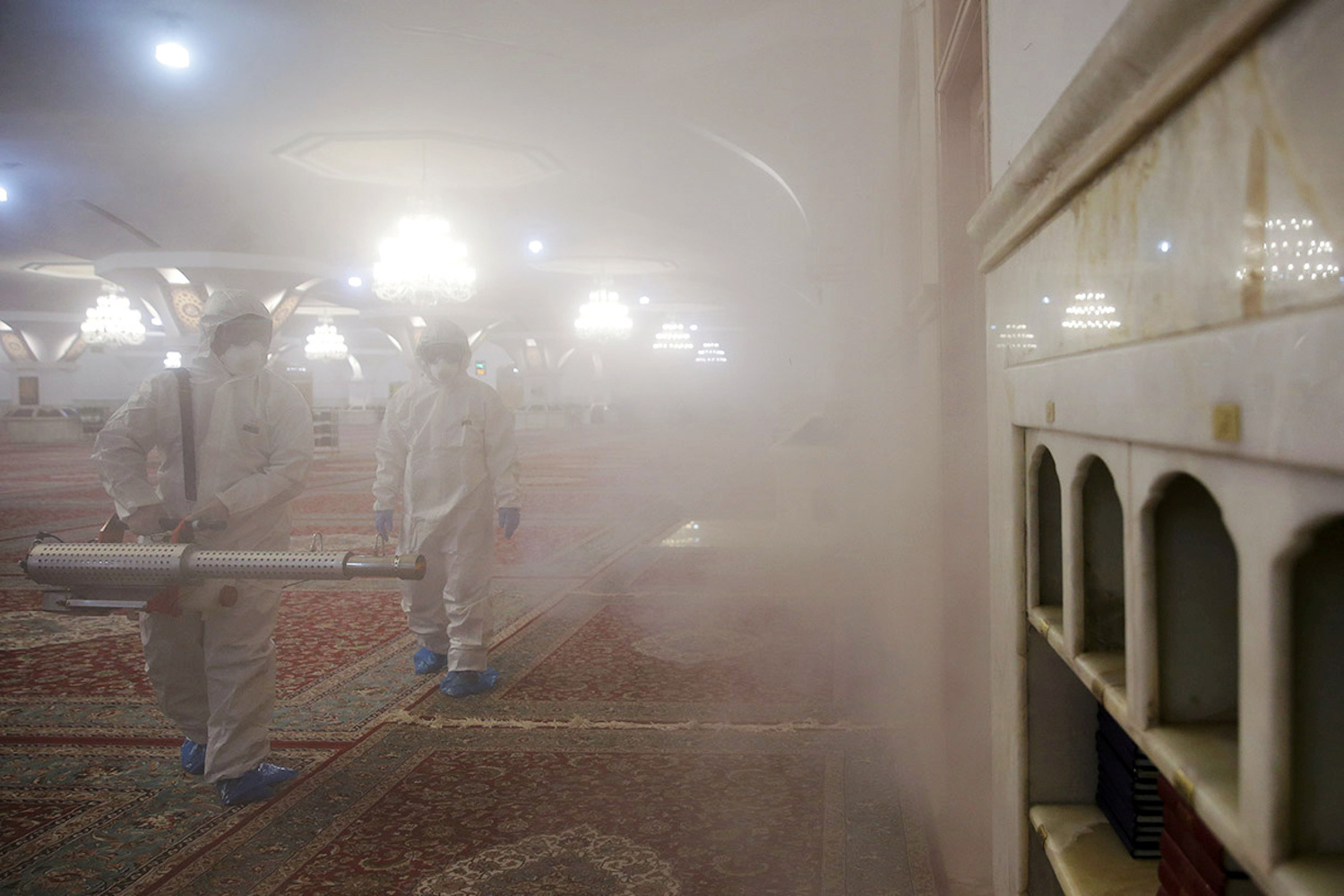
Members of the medical team spray disinfectant to sanitize indoor place of Imam Reza's holy shrine, following the coronavirus outbreak, in Mashhad, Iran Feb. 27, 2020. (Reuters)
07:31 - Saudi Arabia called on citizens and residents to postpone unnecessary travel to Lebanon amid coronavirus concerns.
The Saudi embassy in Lebanon also asked its citizens in the country to take precautions, avoid crowded places and contact the embassy whenever they need help.
Lebanon confirmed its fourth case of the virus on Friday and announced that it was closing all schools until Mar. 8.
06:16 - Kuwait also asked its citizens to avoid traveling over concerns of coronavirus contamination, a health ministry official said at a media conference on Saturday.
The Gulf state has not registered any new coronavirus infections over the past 24 hours, she said.
The total number of people infected with the disease in Kuwait is 45, the health ministry said on Friday, which has reported no deaths.
05:51 - Australia will deny entry to all foreign nationals traveling from Iran due to the escalating outbreak of coronavirus in the Islamic republic, the government said on Saturday.
Foreign nationals traveling from Iran to Australia would need to spend 14 days in another country from Mar. 1, Health Minister Greg Hunt said.
“There is likely at this stage a high level of undetected cases and therefore those cases won’t be intercepted or identified on departure from Iran,” Hunt said.
Australian citizens and permanent residents returning from Iran would be required to self-isolate for 14 days and the travel advice for Australians traveling to Iran has been raised to “do not travel.”
Health authorities on Saturday confirmed the number of cases of coronavirus in Australia was 25 after a 63-year-old woman returning from Iran became ill.




